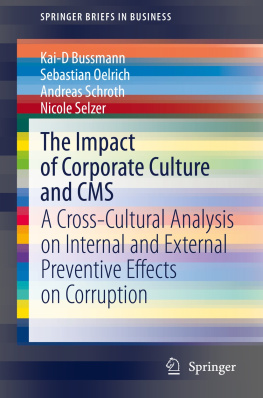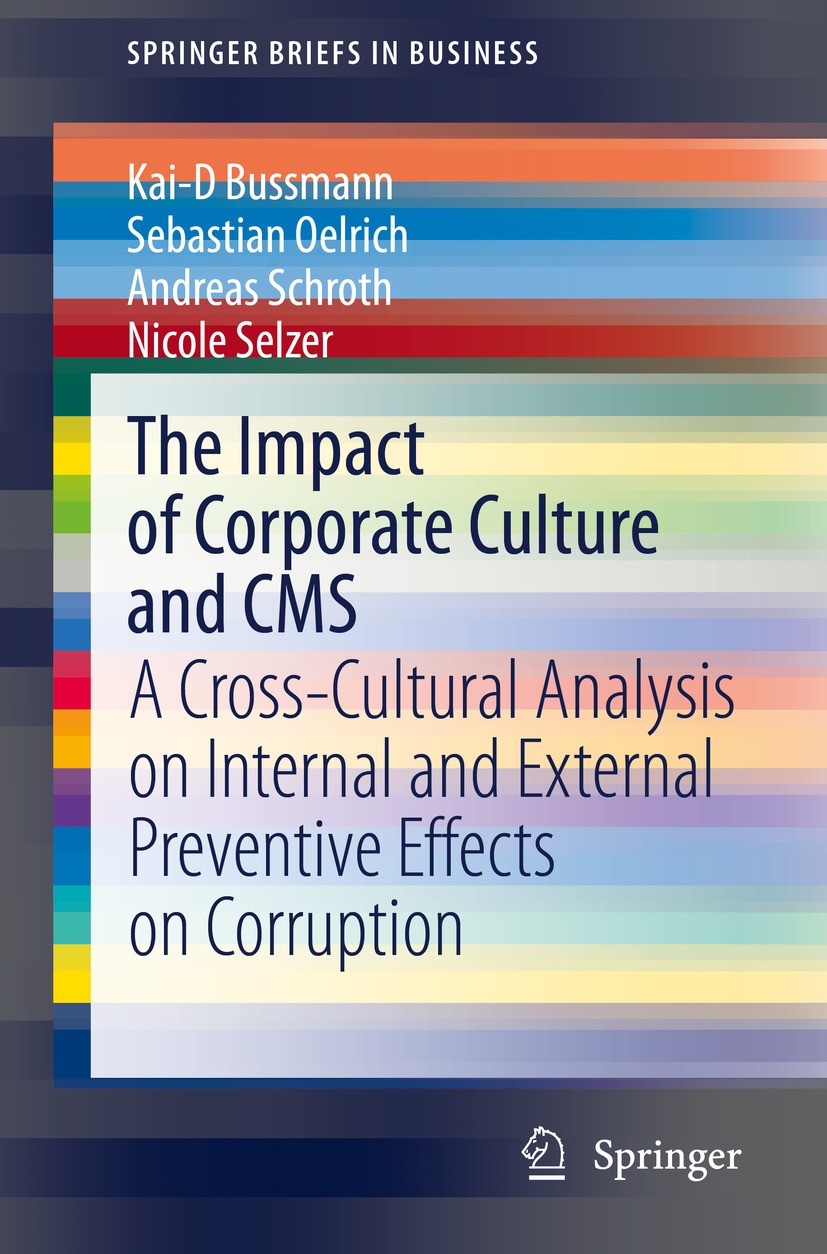SpringerBriefs in Business
SpringerBriefs present concise summaries of cutting-edge research and practical applications across a wide spectrum of fields. Featuring compact volumes of 50 to 125 pages, the series covers a range of content from professional to academic. Typical topics might include:
A timely report of state-of-the art analytical techniques
A bridge between new research results, as published in journal articles, and a contextual literature review
A snapshot of a hot or emerging topic
An in-depth case study or clinical example
A presentation of core concepts that students must understand in order to make independent contributions
SpringerBriefs in Business showcase emerging theory, empirical research, and practical application in management, finance, entrepreneurship, marketing, operations research, and related fields, from a global author community.
Briefs are characterized by fast, global electronic dissemination, standard publishing contracts, standardized manuscript preparation and formatting guidelines, and expedited production schedules.
More information about this series at http://www.springer.com/series/8860
Kai-D Bussmann , Sebastian Oelrich , Andreas Schroth and Nicole Selzer
The Impact of Corporate Culture and CMS
A Cross-Cultural Analysis on Internal and External Preventive Effects on Corruption
1st ed. 2021

Logo of the publisher
Kai-D Bussmann
Faculty of Law and Economics, Martin Luther University Halle-Wittenberg, Halle (Saale), Germany
Sebastian Oelrich
Otto-von-Guericke University Magdeburg, Magdeburg, Germany
Andreas Schroth
Faculty of Law and Economics, Martin Luther University Halle-Wittenberg, Halle (Saale), Germany
Nicole Selzer
Faculty of Law and Economics, Martin Luther University Halle-Wittenberg, Halle (Saale), Germany
ISSN 2191-5482 e-ISSN 2191-5490
SpringerBriefs in Business
ISBN 978-3-030-72150-3 e-ISBN 978-3-030-72151-0
https://doi.org/10.1007/978-3-030-72151-0
The Author(s), under exclusive license to Springer Nature Switzerland AG 2021
This work is subject to copyright. All rights are solely and exclusively licensed by the Publisher, whether the whole or part of the material is concerned, specifically the rights of translation, reprinting, reuse of illustrations, recitation, broadcasting, reproduction on microfilms or in any other physical way, and transmission or information storage and retrieval, electronic adaptation, computer software, or by similar or dissimilar methodology now known or hereafter developed.
The use of general descriptive names, registered names, trademarks, service marks, etc. in this publication does not imply, even in the absence of a specific statement, that such names are exempt from the relevant protective laws and regulations and therefore free for general use.
The publisher, the authors and the editors are safe to assume that the advice and information in this book are believed to be true and accurate at the date of publication. Neither the publisher nor the authors or the editors give a warranty, expressed or implied, with respect to the material contained herein or for any errors or omissions that may have been made. The publisher remains neutral with regard to jurisdictional claims in published maps and institutional affiliations.
This Springer imprint is published by the registered company Springer Nature Switzerland AG
The registered company address is: Gewerbestrasse 11, 6330 Cham, Switzerland
Preface
Although criminology has been concerned with the spread, the forms, and the causes of white-collar crime since the 1940s (Sutherland 1940), it was not until Braithwaite's work in the 1980s that the idea of corporate culture became so central to the discipline:
If we are serious about controlling corporate crime, the first priority should be to create a culture in which corporate crime is not tolerated. The informal processes of shaming unwanted conduct and praising exemplary behaviour need to be emphasized (Braithwaite and Fisse 1983, 246).
Parallel to this development, organizational psychology has also shifted its attention increasingly toward the culture in companies (see Sect. 4.1.4). In numerous studies, it has confirmed the significance of a companys culture not only for the performance, satisfaction, or commitment of its employees, but also for counterproductive work behavior that can also include punishable crimes. Whereas psychology has focused primarily on the behavior of individual persons, criminology has also looked at companies as offenders by starting to differentiate between occupational crime and corporate crime (Clinard and Quinney 1967, 188).
In contrast, economics located the entire problem in concepts of business ethics that were oriented primarily toward economic theory. These revolve primarily around fundamental theoretical issues regarding the compatibility of the market and morality, but they hardly address ways to bring the two together in developing the conditions for corporate cultures to promote integrity.
Even at an early stage, it had already been observed that although value management had purportedly been emphasized strongly in theory, and then companies apparently had considerable problems in putting it into practice. Brought to the point, major economic scandals continued to occur, as the international corruption affairs at Siemens AG in 2006/2007 and other large companies in Germany showed. Since then, many larger companies have followed the repeated calls for business ethics by introducing strongly legalized compliance management systems to respond to their growing legal liability risks as well as market mechanisms (Chap. ).
Remarkably, it is common knowledge from business conferences and discussions with company representatives that any effective compliance program always requires a supportive corporate culture, even when the reality on the ground often appears to be different. Nonetheless, our findings confirm the basic conviction in the business community: Compliance cannot be managed without the support of a corporate culture (Chap. ).
There can be no doubt that it is particularly difficult to implement an integrity-promoting corporate culture in the cultures of developing countries and emerging markets (Chap. ). By developing an integrity-promoting corporate culture in conjunction with a compliance management system, such companies are making a valuable contribution to society on the third level of ethical responsibility: A good corporate culture is pure corporate social responsibility and much more than just a tool for compliance.
Finally, we wish to thank the many large and mostly stock-exchange-listed international companies that participated in our first global study. They bore the burden of filling out a long questionnaire designed by academics. But this preparatory work made it possible to use a validated short questionnaire in the second phase. Hence, we wish to thank all those working in these companies, and we hope to give something back to them with this report on our findings.









